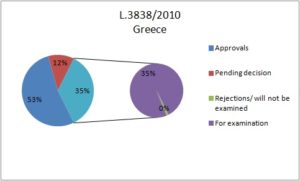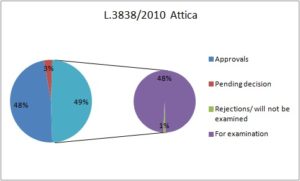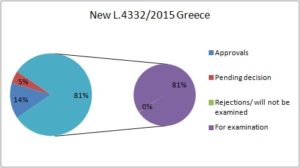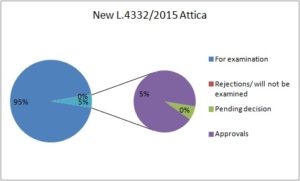Details on Greek citizenship’s applications until 30.9.2016
According to data given by the Office of the Secretary General of Migration Policy, quantitative data are presented about the approvals of the acquisition of Greek citizenship: a) under the law 3838/2010 (Ragousi Law) and b) under the law 4332/2015 (due to birth or school attendance) for Greece and Attica respectively.
Under the law 3838/2010 (Ragousi Law)


Concerning the requests during the former legal status, it seems that a little bit more than the 50% of them has been approved (53% to be exact) in the whole country. The case is identical at the decentralized services of Attica, where the approvals tend to the 47%.
According to the law 4332/2015 (due to birth or school attendance)


As far as the applications under the new law 4332/2015 are concerned, the situation is completely different, with the approvals reaching only a 14% in Greece from all the applications, while in terms of the Attica county, the percentage of the approvals falls even more to 4,7%.
From the above we understand that the disproportionate burden lies in the agencies of Attica, because they gather 43% of the pending applications under the law 383/2010 and 66% of the pending new applications. These percentages are justified by the gathering of the population in the capital city. However, they create peripheries of “different velocity”, a problem which has also been emphasized by Generation 2.0 in a previous report, in August 2016.
It is reminded that according to the Amendments of the provisions for Greek Citizenship (l. 4332/2015)
- Priority is given to the examination of the cases under the law 3838/2010
- A time limit of 6 months is given for the examination of the criminal status of the foreigner adult applicant and a total time limit of 1 year beginning from the date of the application until the completion of the process for adults
- A time limit of 6 months is given from the date of the application by an underage foreigner until the issuing decision of the Decentralized Administration’s Coordinator for the minors’ request

 Ελληνικά
Ελληνικά

